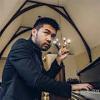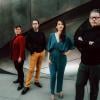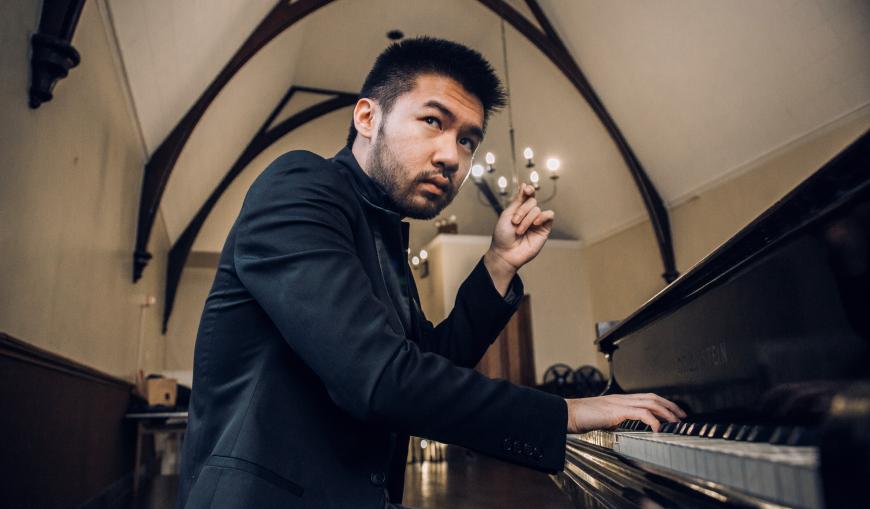
Conrad Tao started playing piano at 4 and began touring at 8 years old. He has released four albums: Voyages (called a “spiky debut” by The New Yorker’s Alex Ross); Pictures (“a fascinating album … played with enormous imagination, color, and command,” according to The New York Times); American Rage, with works by Julia Wolfe, Frederic Rzewski, and Aaron Copland; and in 2021, Bricolage, improvisations and experiments with the brass quartet The Westerlies.
The New York Times wrote about Tao’s “probing intellect and open-hearted vision,” New York Magazine called him “the kind of musician who is shaping the future of classical music,” and the San Francisco Chronicle’s Joshua Kosman wrote, “Tao’s ability to get around a keyboard — with either nimble agility or pounding intensity as required — is something to marvel over.” The pianist has won a whole truckload of awards, including the Gilmore Young Artist Award, an Avery Fisher Career Grant, and the Yvar Mikhashoff Prize, and The Boston Globe named him its 2019 Artist of the Year. A composer as well, Tao seems to constantly reinvent himself, and along with Bach, Beethoven, and Rachmaninoff, he plays contemporary music and has made intriguing projects out of exploring the Harlan County labor disputes, 9/11, and present-day divisions in American Rage; accompanying tap dancer Caleb Teicher onstage; and writing an essay, “Sophie Remembrance,” that was featured in the Poetry Project Newsletter.
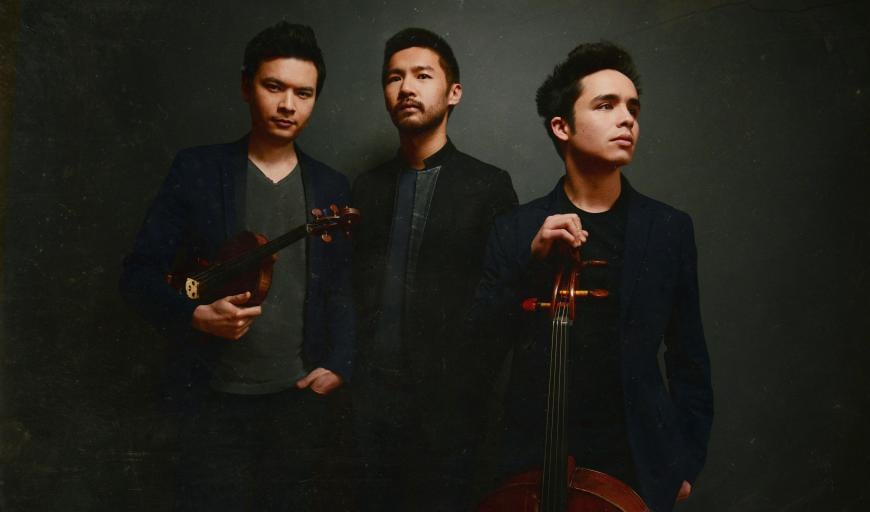
Tao is coming to San Francisco Performances on Dec. 1 with the Junction Trio, his group with violinist Stefan Jackiw and cellist Jay Campbell. They will perform Charles Ives’s Trio for Violin, Cello, and Piano and Maurice Ravel’s Piano Trio in A Minor, along with Tao’s own Eventide.
The pianist and composer talked with SF Classical Voice about bringing social justice into his music, why he wants to work with a tap dancer, and how he didn’t know so much of his life as a musician would be on email.
This performance includes Eventide, a piece you wrote as a teenager. How is it to play that?
Yes, the trio’s program at San Francisco Performances starts with a piece of mine, Eventide, which is my Op. 1. It’s not the first thing I wrote, but it’s the earliest piece of mine I still claim willingly. I have very happy memories of writing that piece. I wrote it in an afternoon, and it was a magical writing experience. I still remember sitting at the piano working out this texture at the instrument. The piano has for the entire middle section of this piece almost like a 10-minute lullaby. I remember sitting at the piano, working out that texture, and going to my computer and writing the piece out in a kind of frenzy of a couple of hours. It was a magical and very rare experience of getting it all out and, for the most part, looking at it like, “I think it’s there.” … I suspect that it was like a moment where I really had inspiration. So, I’ve held on to this piece. I was trying to write a piece about love. [Laughs.] That was the premise. … I was thinking about the heat of desire cooling into something more nuanced and subtle, so settling into evening, perhaps.
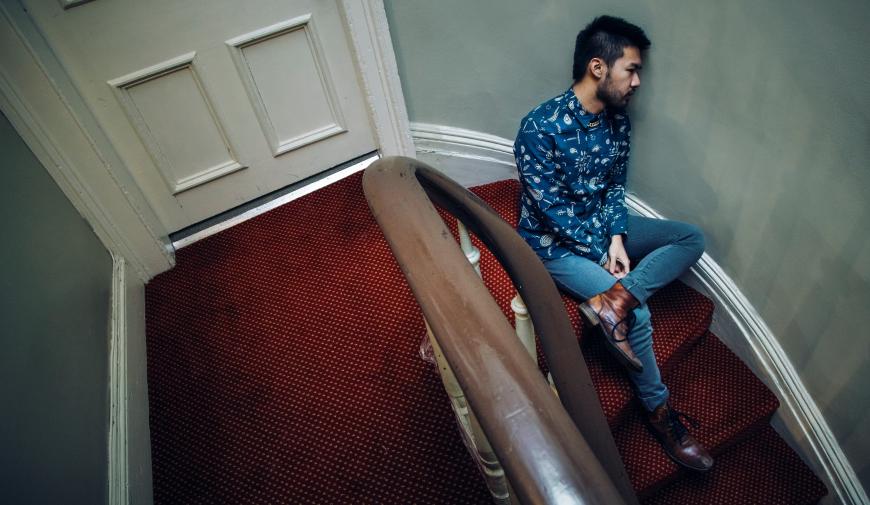
How do you choose what you’re playing with a trio?
It’s a pretty collaborative process without clear hierarchies. Usually someone throws out an initial idea, or usually our programs are anchored by one substantial older work, and then everything else is really up for grabs.
As a solo musician, away from the trio, I do, I would say, almost a half-and-half balance between playing newer music and older music — standard repertoire work and writing my own music, commissioning new works, playing contemporary music, and improvising. I feel like I have a fairly even split. Jay outside of the trio plays his own shows and also plays a lot with this incredible string quartet that focuses entirely on newer music [JACK Quartet]. Stefan does tons of concertizing as a violin soloist playing a lot of older music, so I think we all have a mix, and we bring our different perspectives into the programming discussions, and it happens pretty easily, frankly.
You just mentioned that you’re playing newer stuff. With American Rage, you started with thinking about the Harlan County labor disputes. How did you become interested in that?
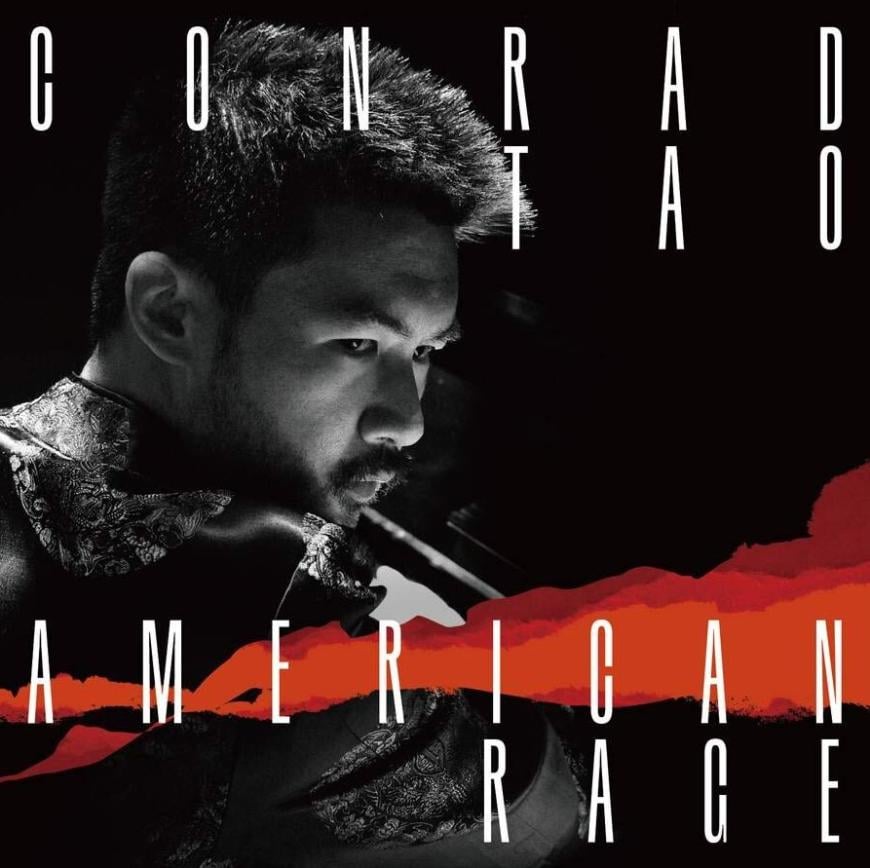
I was lucky enough to be introduced to Frederic Rzewski’s music at a young age. I think the first time I heard his music was when I was about 11. I got to hear his music played by him as well as by others. That was a powerful experience because he was a very, very powerful, expressive pianist himself, so his work left a strong impression on me. Also, I got to meet him as a person, and that left a very strong impression on me, too. I remember him as very funny, slightly cranky, and very, very curious, and I enjoyed meeting him. He wrote a lot of piano music, and he was interested in political things.
The American Rage program, I first did it live in 2015. Looking back, I think I might have been influenced by the beginnings of the 2016 election. I think that’s why I was thinking about labor activism. Also at the time, I was listening as well to a lot of Phil Ochs, the wonderful folk singer who was always kind of solidly in that mid-century American folk protest music tradition. … I think I was inspired by his approach to music, and I wanted to explore music with some political themes.
Unfortunately, labor activism remains relevant, as does police brutality. In addition to being about the Harlan County War, “Which Side Are You On?” the original Florence Reece song — the lyrics are about police brutality as well. Those lyrics were first inspired by an instance where Florence’s home was broken into by the local sheriff and his “gun thugs,” to quote a lyric from the song, who are in search of her husband, a mine union organizer. I was interested in the scenes because I was interested in that legacy of music coming out of this kind of American left tradition, and I wanted to explore these topics because I felt like there wasn’t a lot out there about them.
I also wanted to pair this music by Rzewski, which is very nakedly political, in that it uses as source material these protest tunes, with some of Copland’s solo piano music because Copland’s solo piano music in general, especially the Piano Sonata and the Piano Variations, has this intensity and this angular quality that I felt provided an important additional context to who Copland was as a composer.
The idea of Copland that I think exists in the popular imagination is a composer of bucolic, pastoral Americana, after pieces like Appalachian Spring or Billy the Kid, which are still his most well-known works. I just wanted to highlight an additional emotional quality that I feel in his music, which is sometimes an anger or mournfulness, or an emotional, rich darkness that I think is present in all of Copland’s music, but it’s so foregrounded in these pieces. I was hoping to highlight the fact that Copland himself was a closeted gay, Jewish man who was questioned by McCarthy and was controversial enough that he had to stand trial. I was also thinking about something that happened during the 2012 presidential election, which was Rick Perry released an explicitly homophobic campaign ad in which the background music was sort of like Appalachian Spring. It was clearly a takeoff on Copland.
You have said that when you were 10 or so, you started listening to different music because of your teachers. You say that made you aware of social justice issues, and you wanted to bring that into what you play.
To me, having the music I play feel related to the world around me continues to feel almost like a no-brainer in the sense that it helps me feel like I’m in the world and actually relating to the world with the work that I’m putting out and sharing with people. It seems simply like a useful thing.
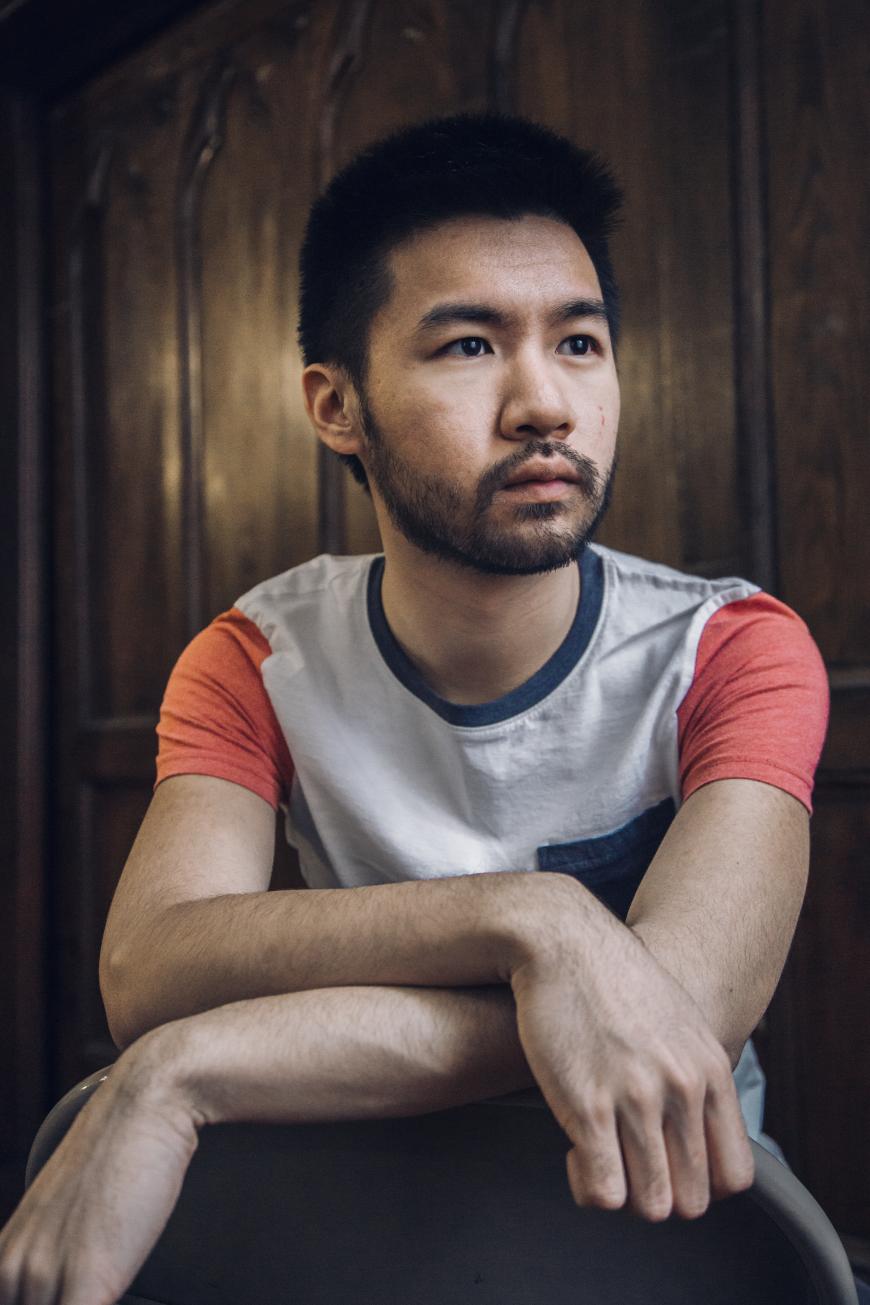
My composition teacher, Chris Theofanidis, when I was pretty young, opened my ears and showed me how much music was being written as we spoke. It showed me that there was so much to be gained when you didn’t think of what you already knew as a default.
My experience of having my ears open at the age of 10 was hearing John Adams’s Chamber Symphony for the first time and Tehillim by Steve Reich. Both those pieces I heard when I was 10 or 11, and they blew my mind, and that was such a powerful experience for me that showed me that there was always so much more beyond what I was familiar with. It wasn’t just about being introduced to a lot of different things, although I think that’s the prerequisite. It was also the really profound experience of connecting with music that was coming from all over, that was using different approaches.
I continued my own exploration, just being a teenager online, and being of the YouTube and file-sharing generation, listening to a ton of music and building my iTunes library, and I was all about it. Through that listening experience, I just kept encountering unfamiliar approaches to music that, despite maybe not being able to articulate what was happening, despite not being able to even “understand” what might be happening, I still felt connected to it. And to me, having that experience multiple times has been a massive influence because it has shown me that not assuming the default, not having that assumption, has been nothing but positive. I think that guides me artistically. To me, that is linked to social justice simply because of the question of who gets to define what the default is. The question of how to ensure that creative voices be not just heard but deeply listened to just seems essential to me.
You’ve worked with Caleb Teicher, who tap dances while you play pieces like Rhapsody in Blue. What are you hoping that kind of juxtaposition does?
Caleb Teicher is a progressive dancer I’ve worked with several times over the years. The first thing we did together was for their company — Caleb uses they/them pronouns. We premiered a piece together in 2019 for seven dancers in a sandbox that we would construct in every city with me on piano and electronics, More Forever. I’m really proud of the piece, and that was what brought us together.
Caleb and I now are also touring a duo recital, “Counterpoint.” The premise is quite simple — just counterpoint in the literal, familiar classical-music sense of the word. You know, there’s some good old Johann Sebastian Bach on there, so counterpoint in that sense, but also counterpoint between our professions. Caleb comes from the storied and long tradition of American tap dance, as well as referencing Appalachian clogging and Lindy Hop, vernacular jazz dance, and swing dance. I come from the tradition of European classical music. And over the course of that program, we also play selections from the American jazz tradition. We have some improvisation by Art Tatum on the program. The goal there is to highlight the differences and connections between our different instruments.
Being a composer as well as a pianist, how do you structure your day? Do you do some things one day and some things the next? Does it change?
There’s not a regular day. It is very chaotic, frankly. All I can say is you try to take the writing time whenever you can. I like concentrated periods of time, so if I can get a few days in a row, where you can have writing time, I will. I’ll block that off because I like to have open time if I can and few distractions. You have like 10 to 15 open hours to be receptive, hopefully. For me, that’s the only way that I’ve managed to do it. In a couple of days I’m about to go to Florida for an artists’ retreat, which is certainly one way to make sure that you’ve got some time to write. I cannot say that I found some magic daily schedule that covers all the bases. I’m sure that musicians are not the only ones that feel this way, but sometimes I think to myself, “I wish that someone had told me how much of my life was going to be emails.” Because now I would certainly tell first-year undergrads to just be ready — your inbox is where everything happens. I don’t know anyone who’s trying to use their phone more.


